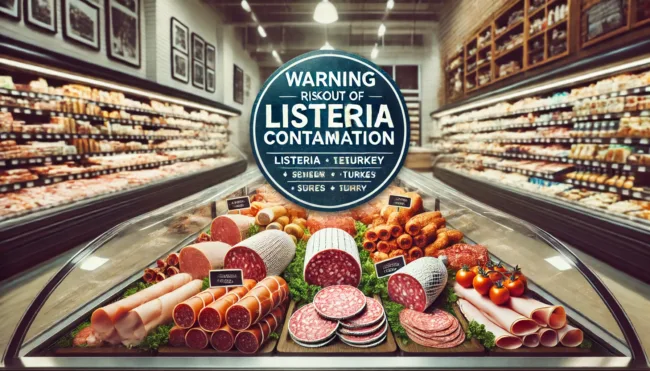CDC warns: Deadly Listeria outbreak tied to deli meat—what you need to know
The United States Centers for Disease Control and Prevention (CDC) has launched an investigation into a significant outbreak of Listeria monocytogenes, which has been linked to two fatalities and 28 hospitalizations across 12 states. The health agency is advising vulnerable populations, including pregnant individuals, the elderly, and those with compromised immune systems, to avoid consuming sliced deli meats unless they are recooked to a steaming hot temperature. This precautionary measure is part of the CDC’s efforts to control the outbreak and ensure public safety.
The CDC’s advisory comes as health officials report that the outbreak has been associated with deli-sliced meats, such as turkey, liverwurst, and ham. Samples taken from victims between May 29 and July 5 reveal a genetic link between the bacteria found in the cases.
Although the CDC has not identified the specific source of the contamination, preliminary findings suggest that deli meats from various supermarkets and grocery store delis may be implicated.
The CDC’s caution stems from the possibility that the actual number of cases may be higher than reported.

The CDC investigates a Listeria outbreak linked to deli meats, advising vulnerable groups to avoid consuming sliced meats unless recooked
Many individuals who recover from Listeria infections at home might not seek medical testing, potentially leading to an undercount of cases and an unrecognized spread beyond the states currently identified.
The CDC has emphasized that while there is no current evidence linking prepackaged deli meats to the outbreak, at-risk individuals should take precautions. Refrigeration does not eliminate Listeria bacteria, but reheating deli meats to a steaming hot temperature can kill any potential contaminants. This recommendation aims to mitigate risks for those who have already purchased deli slices.
Listeria infection, or listeriosis, typically manifests as fever, muscle aches, and fatigue. More severe symptoms can include a stiff neck, confusion, loss of balance, and convulsions. Symptoms may appear within a few days or up to 10 weeks after consuming contaminated food. Diagnosis is commonly achieved through testing blood, urine, or spinal fluid.
The Mayo Clinic highlights that Listeria is particularly hazardous for individuals over 65 and those with weakened immune systems. The CDC’s guidance aims to prevent further cases and protect at-risk groups from the potentially severe consequences of the infection.
Historically, Listeria outbreaks have led to recalls of various food products, including cheeses, bean dips, milk, mushrooms, ice cream, and packaged salads. While no specific food product has been recalled in connection with this outbreak, the CDC’s advisory underscores the importance of food safety practices.
As the CDC continues its investigation, it is crucial for consumers, especially those in high-risk categories, to adhere to the recommended precautions. The public health response will evolve based on further findings, with updates provided as more information becomes available.
Discover more from Business-News-Today.com
Subscribe to get the latest posts sent to your email.

